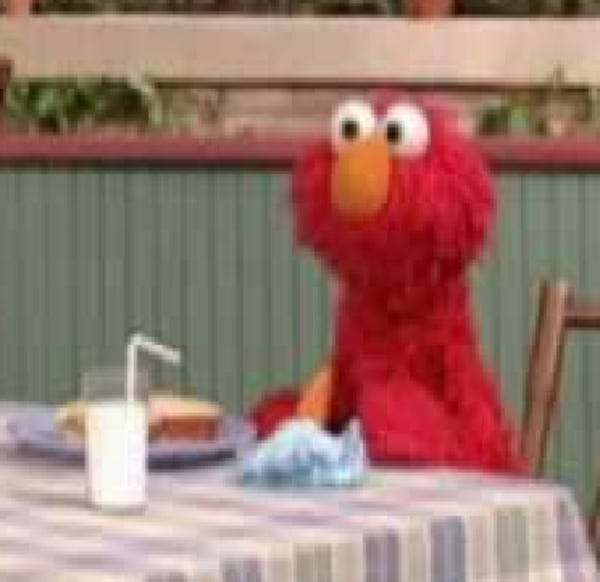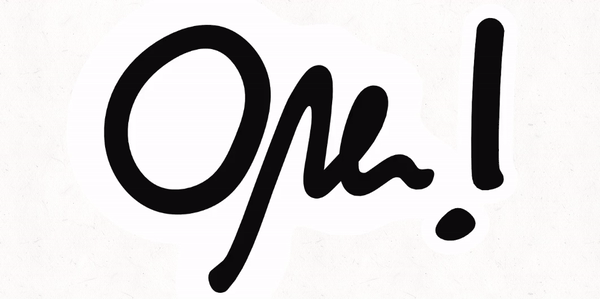Hey now, welcome to OPE!, the newsletter by writer and music journalist Brady Gerber (me). Once a week, I talk about one specific “thing.” I also have a podcast (where I’m reading James Joyce’s Finnegans Wake one sentence at a time) and a blog analyzing each week’s Billboard Hot 100 updates. Follow me on X, Bluesky, or Threads for song recommendations; I find all three silly. Follow me on Instagram for memes. All typos are intentional.
Well, hello there. How are you?
In my early 30s, I read, and then annually reread, Brian Eno’s published diary, A Year with Swollen Appendices, released in 1996, in which Eno kept a diary tracking his everyday life throughout 1995, which was a relatively quiet year for Eno.
I always keep my 25th anniversary copy by my bedside or writing desk.
It’s an amazing, albeit quasi self-aware look into one year of a beloved artist in middle age. (Eno admits in his introduction that he decided to publish his diary a little over halfway through the year.) Eno turned 47 in 1995, still working and in demand by his fans but not quite the bellwether he once was; the time when “trailblazing musician” turned into “still curious yet grumpy statesman.”
I’m not projecting an unfair image of a washed Eno onto him either. This is from his May 15th entry regarding his birthday:
“Today I am 47 — Christ, that does seem old to me … I’m always feeling that I’ve spent most of my life getting ready for something, honing skills and sensibilities for … what? I don’t mean to convey a sense of hopelessness here — I’m certainly not depressed or anything like that — but there is a feeling that things could just drift on and on like this: me being quite successful and accruing the respeect of sheer inertia — being praised for still being there, while somehow not exploring the extent of my interests and intellect.”
Now, I’d like to have an inch of Eno’s success — this passage gives strong “Jerry Seinfeld’s joking about how life sucks” energy. Still, it’s inspiring to me to read private journals from a creative icon I’d consider “successful” and realize that he, too, felt a sense of malaise and uncertainty with his own life and work.
My favorite passage in the diary further explores this idea. It’s written towards the end of the book as one of the titular appendices, talking about a low point in his life as a young man.
The appendix section is titled “Into the Abyss”:
“After several months of work, I slowly grind down and it all starts to seem like 'my job'. I do it, and I probably don't do it too badly, but I find myself working entirely from the momentum of deadlines and commitments, as though the ideas are not springing forth but being painfully squeezed out. At the back of my mind, unadmitted to, are some nasty thoughts swimming about in the darkness. They whisper things like: 'You've had it' and 'You're out of steam.'
Experience has shown me that, when I reach this point, all the distractions I can muster are only postponements. It's time to face up to total, unmitigated despair.
I sometimes do this by going alone on a 'holiday' – though that word scarcely conveys the crashing tedium involved, for I usually choose somewhere uneventful, take nothing with me, and then rely on the horror of my own company to drive me rapidly to the edge of the abyss.
It goes like this: me thinking, 'What's it all for?/ What's the bloody point?/ I haven't done anything I like and I don't have a clue what to do next/ I'm a completely empty shell.' This lasts two days or so, and is the closest I ever get to depression. Then I suddenly notice – apropos of something very minor, like the way a plane crosses the sky, or the smell of trees, or the light in the early evening, or remembering one of my brother's jokes – that I am thoroughly enjoying myself and completely, utterly glad to be alive. Not one of the questions I asked myself has been answered. Instead, like all good philosophical questions, they've just ceased to matter.
I think the process involves reaching the point of not trying any more to dig inside, but just letting go, ceding control, saying to myself, 'I am utterly pathetic, so I might as well give up.' And at the point of giving up I'm suddenly alive again. It's like jumping resignedly into the abyss and discovering that you can just drift dreamily on air currents.
I think I got this idea from Robert Fripp. I was in New York in 1978, living in a hotel, with bronchitis, and feeling very miserable. I met up with him one day and, on the subway, told him how down I was and that I felt like a completely empty shell.
‘But, Captain,’ he said (he always called me this), ‘don’t you realize that all over North America people are shelling out enormous fortunes to feel the same way?' I nearly fell on the tracks laughing, and felt wonderful for the next six months. Peter Schmidt used to call that feeling Idiot Glee.
This feeling, of sheer mad joy at the world, is ageless. It's the fresh, clear stream at the bottom of the abyss.
Joy is energy.“
Brilliant.
This week’s link worth clicking:
This has now become my most-watched YouTube video ever. It’s a masterpiece. It’s Steak Bentley’s video essay from 2018: “Metal Gear Solid 4 Was a Mistake.” Might not make sense for anyone who’s never played a Metal Gear Solid game. For everyone else, enjoy.
And that’s it.
See you next time.
With love and all the other good things,
-b
Original OPE! logo by Claire Kuang. Words and cartoons by yours truly. My views don’t reflect my clients or the publications and brands I work with. Want to yell at me or tell me that I’m great? Here’s my website.
If you’re already a paying subscriber, share OPE! with one of your friends. Sharing is caring—and it keeps OPE! going.





